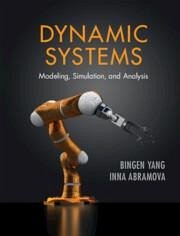"A dynamic system is a combination of components or subsystems, which, with temporal characteristics, interact with each other to perform a specified objective. There exists such a variety of dynamic systems in applications, as machines, devices, appliances, equipment, structures, and industrial processes. Mathematically, a dynamic system is characterized by time-dependent functions or variables, which are governed by a set of differential equations. Physically, the components of a dynamic system may fall in different fields of science and engineering, such as mechanics, thermodynamics, fluid dynamics, vibrations, elasticity, electronics, acoustics, optics, and controls. As an example, an electric motor is a dynamic system consisting of mechanical components (like rotating shaft, bearing and housing), electromagnetic components (such as magnets, coils and electrical interconnects), and components for controlling the motor speed (including speed sensor, control logic board and driver). These components interact with each other to achieve a desired motor speed. The rotation speed and circuit currents are time-dependent variables of the motor that are governed by differential equations in the fields of dynamics and electromagnetism"--
Hinweis: Dieser Artikel kann nur an eine deutsche Lieferadresse ausgeliefert werden.
Hinweis: Dieser Artikel kann nur an eine deutsche Lieferadresse ausgeliefert werden.








